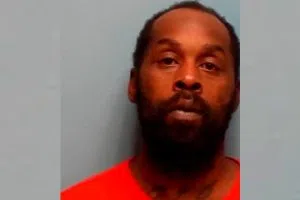(KNSI) — A report from the Minnesota Office of Legislative Auditor shows that the Department of Human Services made $40 million in overpayments to Medical Assistance providers and has done little to recover that money.
The DHS oversees the Minnesota Health Care Programs, which include Medical Assistance, MinnesotaCare, and the Minnesota Family Planning Program. These programs work with medical providers in healthcare clinics, hospitals, nursing homes, and other settings to provide coverage to eligible adults, families with children, people with disabilities, and seniors. The DHS receives federal, state, and county funds to administer and manage these programs.
The audit was conducted to determine whether DHS had adequate internal controls and complied with finance-related legal requirements, including overpayments due from providers as a result of claims adjustments. Overpayments are also called provider credits, which are actually debts owed by providers to DHS.
Auditors were on the hunt to answer two questions: First, did the DHS comply with legal requirements for recovering outstanding debt from providers, and did it have adequate internal controls to ensure compliance with these legal requirements? Secondly, did the DHS comply with legal requirements related to financial reporting, and did it have adequate internal controls to ensure compliance with these legal requirements?
DHS staff were interviewed, and samples were taken from 59 providers to determine the accuracy of their reported balances. Eight years’ worth of certifications to the Minnesota Management and Budget office was pulled, and nine other DHS programs that do not use the state’s accounting systems to track receivables were reviewed and surveyed.
Minnesota Management and Budget policy says state agencies are responsible for maintaining internal policies to ensure debt collection. That same policy also requires agencies to refer debt that is over 120 days past due to the Minnesota Department of Revenue.
Auditors said the DHS had made no attempt to recoup outstanding provider debt since 2019 when it sent one collection notice to a provider. It has also failed to refer outstanding debt to the DOR. The last date for which DHS has documentation that it mailed collection notices to numerous MA providers is February 11th, 2015. That adds up to $40 million in outstanding overpayments.
The report says that by not attempting to recoup the outstanding MA provider debt, DHS has not collected—and potentially lost—money that the State of Minnesota is owed.
Officials with the DHS say there are more than 340 providers with ownership changes and it plans to review that so the outstanding balances of almost $20 million can be transferred. They added they are pursuing collections on $6 million in debt from about 120 providers with balances between three and six years old.
Auditors also found the DHS is planning to forgo recovery of outstanding provider debt that may still be recoverable, which is not in line with its own accounts receivable policy. They’re also not going to go after those owing a balance older than six years due to a statute of limitations in state law. The OLA says the statute doesn’t apply to administrative actions to recover payments.
The DHS is accused of not accurately reporting its accounts receivable balance to Minnesota Management and Budget for inclusion in the state’s financial statements since 2019. It has also not updated or reassessed its calculation to determine the portion of debt it does not expect to recoup from providers since Fiscal Year 2019, and it was unable to provide adequate data to allow the OLA to confirm the outstanding provider balances.
Auditors say the DHS needs to recover the outstanding overpayments and must improve internal controls to make sure it regularly pursues collections, and accurately reports its accounts receivable balance in the state’s financial records and financial statements. The agency also should recover the debt in accordance with its own policy and state law and work with the legislature to clarify its authority to recover outstanding debt. It also needs to put a process in place to document balances and accurately record the outstanding debt in the Medicaid Management Information System.
House Speaker Designate Representative Lisa Demuth (R-Cold Spring), who has regularly expressed her outrage at the waste and fraud that has gone on under Governor Tim Walz’s watch, issued a statement after the report was released, saying, “It’s shocking that the Department of Human Services still does not have processes in place to stop and prevent waste of taxpayer dollars. Even more concerning are the apparent accounting practices that are inaccurate at best or deceptive at worst. DHS is failing at their basic responsibilities, and once again there has been no accountability from Gov. Walz or Commissioner Jodi Harpstead. Until agencies and commissioners are held accountable for their failures to follow basic accounting practices under state law, these problems will continue. One of House Republicans top priorities next session will be to stop waste and fraud in our agencies; DHS is clearly at the top of the list and should expect more scrutiny in the coming weeks and months.”
The next legislative session starts on January 14th.
___
Copyright 2024 Leighton Media. All rights reserved. This material may not be broadcast, published, redistributed, or rewritten, in any way without consent.










